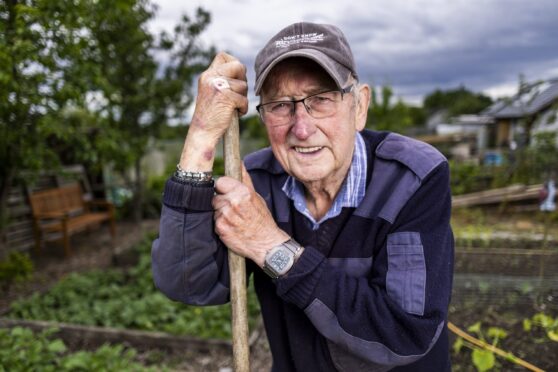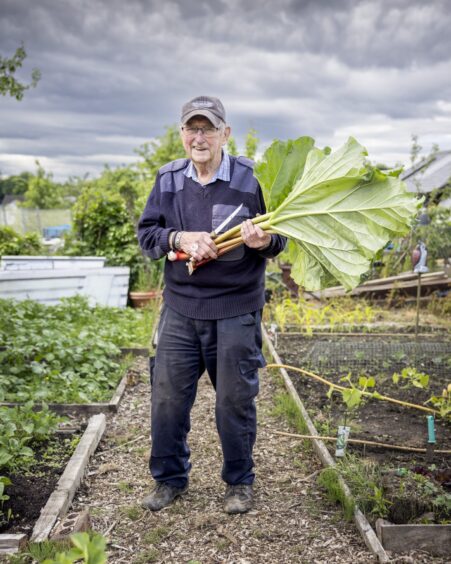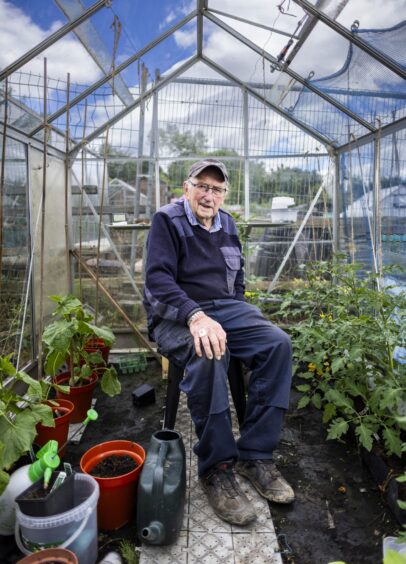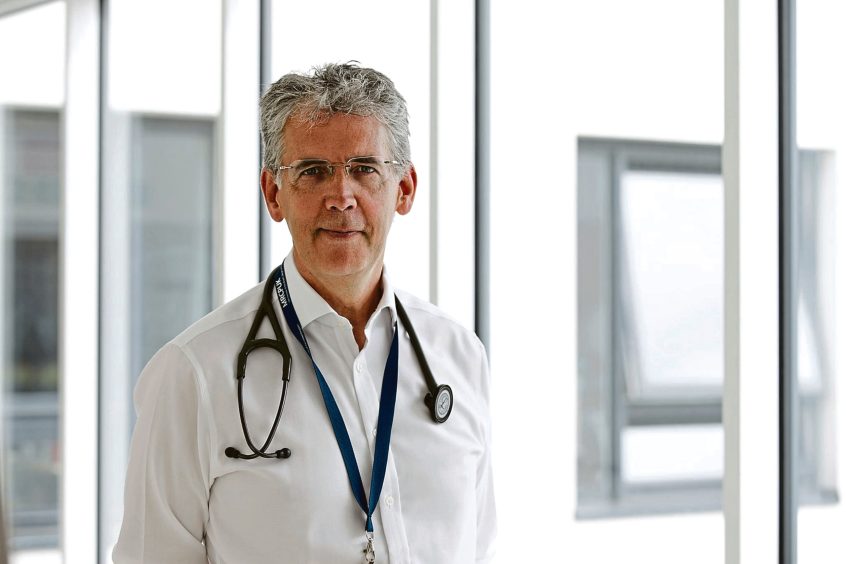
At 90, an age when most people have long since put their feet up, Harry Scalley is digging his allotment, hoping for another bumper harvest.
His patch in the east end of Glasgow shows a promising crop of onions and broccoli, and the tomatoes are coming along nicely.
With many of his childhood friends “away now” Scotland’s constant gardener and star of Budhill and Springboig allotments is happy to show other plot holders just how it’s done. It’s the great granddad’s 30th year of tending his plot just a street away from the train line.
He said: “I never saw myself as having an allotment until I won a gardening prize and the organisers asked if I could take on a plot, because the local ones were under threat of closure. So I took two and since then we have grown to 70 allotment holders.
“It’s been a real treat, particularly growing tricky vegetables like chilli peppers and corn as they are so much better then fast or convenience foods.
“I cook everything from scratch. Last night I had mince and tatties with cabbage and a home-baked scone with a cuppa to wash it down.”
Harry’s dedication
The others at the allotment say they have flourished under Harry’s guidance.
Mo McKendrick, allotment secretary, said: “Along with another allotment holder, Bob, Harry has built sheds, fences, an open greenhouse for us all and a shed for one mum whose son has mobility problems.
“Without Harry we wouldn’t be here because I think it was under threat of closure before he came. We’re looking for a rose called Harry to mark his dedication, if anyone has one.”
Harry’s daughter Glenda has joined him to do some heavy lifting.
His life could be textbook guidance on longevity, written by top researchers in ageing.
Exercise, good food and a social life have in recent years proved to extend life and healthy life span.
The east end of Glasgow has an average life expectancy of 70, and healthy life expectancy of 54.
“Most of my family all died young except my mother who lived until she was 93, so I’m doing my best to match that,” he says.
“I had two allotments until I was 80 when I cut down to one. Aside from a back injury a couple of years ago where I fractured a couple of vertebrae, I do well if I pace myself. We were raised to keep working.”
His contemporaries at his former school Eastbank Academy included plastic surgeon the late Ian Jackson, who became famous for rebuilding the face of his adopted son David, who was found in the Peruvian jungle with a deformity caused by a disease.
Harry puts his long, active life down to playing football and hockey when he was young.
“Money was tight but there were plenty of opportunities for sport because it was run by local clubs and schools,” he said.
His first job on a milk float at the age of 12 was followed by a paper round delivering The Sunday Post.
“My dad had MS and the pressure was on me to bring money into the house so I got what work I could as a child. I left school at 15 for a job as a clerk at £2.70 a week in today’s money and was called up to do my two-year national service in radio communications in Germany, where I found I was good at languages as well as maths.
“Back out on civvy street I became a TV and domestic appliances engineer, then a sales service guy with Hoover and moved to become a taxi driver for 25 years before getting a driving job with a bakery which took me all over the west of Scotland.”
His demob reference reveals an ability to accept change in later life – another key to remaining healthy in later years.
“I was described as good at adaptation in the field, better known as being able to turn your hand to most jobs,” he adds.
“There’s givers and takers and I like to think I’m a giver. I don’t like to see anyone stuck.”
Gardening in old age
The concept of gardening as one of the keys to a healthy old age is backed by Professor Andrew Elder, President of the Royal College of Physicians of Edinburgh.
Professor Elder, a geriatrician, said: “Mr Scalley is a fantastic example of how a balanced diet, low on processed foods, and enjoyment of physical and social activities such as gardening, can make a real difference to life in older age and we wish him continued good health.
“Evidence suggests that maintaining social contacts and having a sense of purpose as we grow older not only reduce isolation and loneliness and add life to our years and add years to our life!
“The Royal College of Physicians of Edinburgh supports ‘social prescribing’ – including gardening where appropriate and considers that it can help people with both physical and mental health challenges feel more positive and well.”
He adds that strongly connected communities, with old and young socialising and looking after each other, are at the root of this.
Longer and healthier lives thrive in social surroundings like family and friends and neighbourhood groups.
“We need to work to improve these,” Professor Elder adds.

Enjoy the convenience of having The Sunday Post delivered as a digital ePaper straight to your smartphone, tablet or computer.
Subscribe for only £5.49 a month and enjoy all the benefits of the printed paper as a digital replica.
Subscribe © Jamie Williamson
© Jamie Williamson © Jamie Williamson
© Jamie Williamson